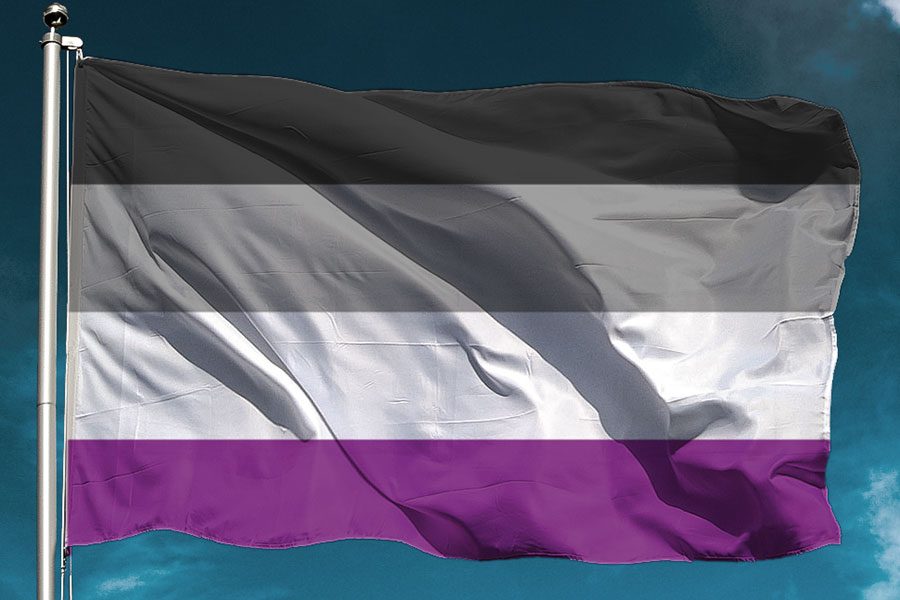Asexual Representation
How Asexuality is underrepresented in the media and why it needs to be addressed.
September 10, 2018
Unlike the type you typically hear about in science class, asexuality for people is when a person does not experience sexual attraction. Like the heterosexual-homosexual spectrum, asexuality is also a spectrum in relationship to sex. While asexuals don’t experience sexual attraction, that doesn’t necessarily mean all asexuals are opposed to sex. Asexuality is not the same as celibacy, or the practice sexual abstinence, because celibacy is a choice. Being asexual also doesn’t mean you can’t experience romantic attraction, although not experiencing sexual or romantic attraction is also possible and called aromantic.
According to www.asexuality.org , about 1% of the population identifies as asexual, making it one of the smallest minorities.
Asexuals need representation in the media because while it is a smaller group, people need to see asexuals as normal people that do exist. Also, audiences need to see that despite not being attracted to people the same way as most, they do need to be treated the same, and not like they are broken people who don’t have feelings. People need to realize that people who identify as asexual do not need to be fixed just because they aren’t attracted to people like the majority of the population. It isn’t right that because of lack of representation, youths may not know what asexuality is and might think of themselves as broken.
Jughead from the “Archie” comics was asexual, but this was changed when the comics were adapted for the popular show, “Riverdale.” As someone who identifies as asexual, this makes me angry that we had a very good asexual character, but when adapted for television, he was changed to fit the status quo. It is especially painful when the show the comic was adapted into is so popular and having a character that was already asexual taken away like that instead of his intended character would have really helped diversify the cast and would have given asexuals the representation we deserve. Lord Varys from “Game of Thrones,” on the other hand, is a very prominent character who not only openly stated he didn’t have an interest in anyone, but he’s also proud of being asexual because he claimed desire for other people is tearing apart his country and doesn’t want any part of it. “Game of Thrones” is an example of another popular show, but unlike “Riverdale,” the producers doesn’t shy away from representation, even having an asexual character that’s integral to the plot.



